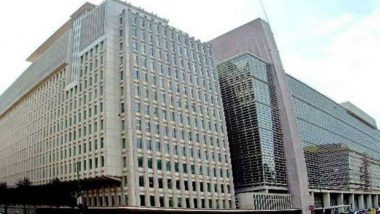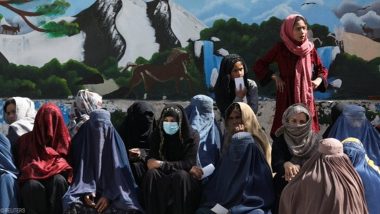Washington DC, January 9: Global economic growth is forecast to edge up to 2.5 per cent in 2020 as investment and trade gradually recover from last year's significant weakness but downward risks persist, the World Bank says in its January 2020 Global Economic Prospects.
Growth among advanced economies as a group is anticipated to slip to 1.4 per cent in 2020 in part due to continued softness in manufacturing. Growth in emerging market and developing economies is expected to accelerate this year to 4.1 per cent.
This rebound is not broad-based. Instead, it assumes improved performance of a small group of large economies, some of which are emerging from a period of substantial weakness. About a third of emerging market and developing economies are projected to decelerate this year due to weaker-than-expected exports and investment.
"With growth in emerging and developing economies likely to remain slow, policymakers should seize the opportunity to undertake structural reforms that boost broad-based growth, which is essential to poverty reduction," said Ceyla Pazarbasioglu, World Bank Group Vice President for Equitable Growth, Finance and Institutions.
"Steps to improve the business climate, the rule of law, debt management, and productivity can help achieve sustained growth," she said. Growth in south Asia is expected to rise to 5.5 per cent in 2020, assuming a modest rebound in domestic demand and as economic activity benefits from policy accommodation in India and Sri Lanka and improved business confidence and support from infrastructure investments in Afghanistan, Bangladesh and Pakistan.
In India, where weakness in credit from non-bank financial companies is expected to linger, growth is projected to slow to 5 per cent in FY 2019-20 which ends March 31 and recover to 5.8 per cent the following fiscal year.US growth is forecast to slow to 1.8 per cent this year, reflecting the negative impact of earlier tariff increases and elevated uncertainty. Euro area growth is projected to slip to a downwardly revised 1 per cent in 2020 amid weak industrial activity.
Downside risks to the global outlook predominate, and their materialisation could slow growth substantially. These risks include a re-escalation of trade tensions and trade policy uncertainty, a sharper-than expected downturn in major economies, and financial turmoil in emerging market and developing economies.
Even if the recovery in emerging and developing economy growth takes place as expected, per capita growth would remain well below long-term averages and well below levels necessary to achieve poverty alleviation goals."Low global interest rates provide only a precarious protection against financial crises," said World Bank Prospects Group Director Ayhan Kose."
The history of past waves of debt accumulation shows that these waves tend to have unhappy endings. In a fragile global environment, policy improvements are critical to minimise the risks associated with the current debt wave," he said. (













 Quickly
Quickly




















